You would think that with childcare prices the way they are that early childhood educators would be paid well. But the thousands of childcare workers who took to the streets today have shown us otherwise.
Across the country, early childhood educators went on strike as a last resort to protest the wages and conditions that mean they can no longer deliver the quality of education children deserve. United Workers Union (UWU) members from more than a thousand childcare centres participated.
But these problems are far from new for the early childhood education and care sector. Union members have shared the type of support they need for them to continue.
- Give educators a reason to stay and pay them what they’re worth
- Value early learning as part of the education system – early learning centres are just as important as schools
- Put children before profit
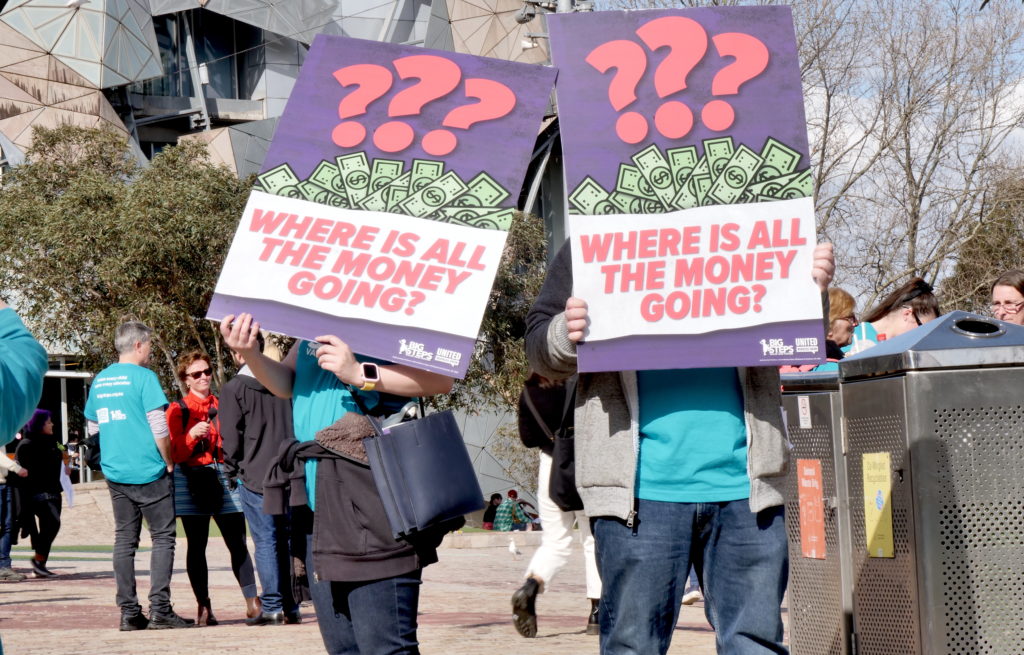
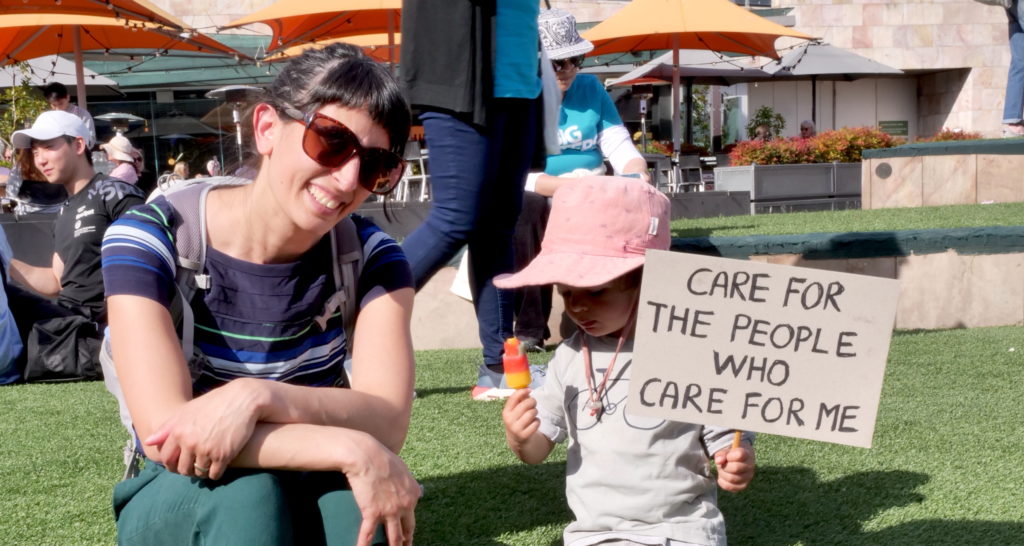
So, into whose pockets have the exorbitant costs of childcare gone? The UWU set out to track where the enormous profits had ended up. And to nobody’s surprise, the answer was: the pockets of CEOs.
UWU released a report that offered a view into the lifestyle of CEOs that educators can only dream of with their insufficient wages.
And the discrepancies in pay cheques are jaw-dropping.
The incoming CEO of G8 – the largest for-profit childcare provider in Australia – receives a pay packet of up to $2.6 million a year. In the same company, educators are on rates of around $24 an hour.
The sheer imbalance is simply unfair. After all, it is the early childhood educators who created the bulk of the profits.
It does not come as a shock then that health and safety issues already prevalent in not-for-profit centres are even worse in for-profit centres.
According to a United Workers Union survey last year, more than 70 per cent of educators in for-profit centres say their workplaces are understaffed compared to 65 per cent of workers in not-for-profit centres.
Half of those surveyed who worked at for-profit centres said they would not recommend a career in Early Childhood Education and Care.
With early years education becoming more and more privatised, workers and ‘customers’ (children) have become less and less central to the decisions made by multi-millionaire CEOs. Workers are continually put at risk to meet the excessive demands of the job making it impossible for them to provide the quality care and education we should expect for our children.
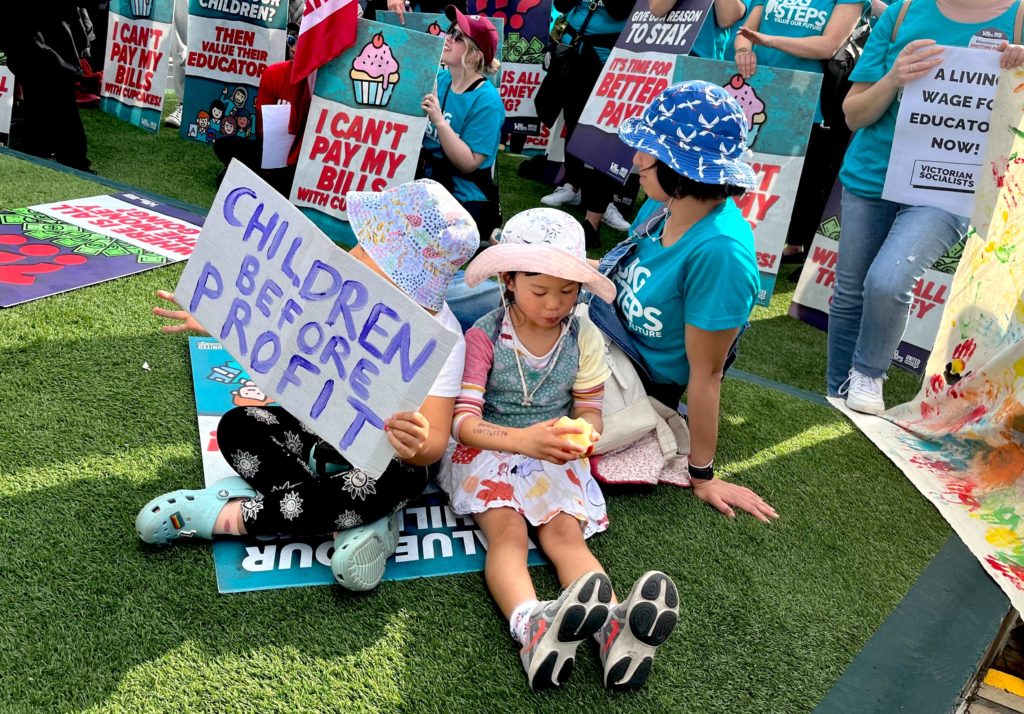
The reason why early childhood educators could take such massive action today was because they had other educators, parents and community members standing beside them.
With an almost two million workers strong union movement across Australia, together we get things done. That means better wages than non-union members and the workplace conditions you deserve.




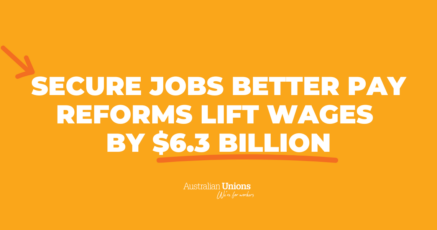
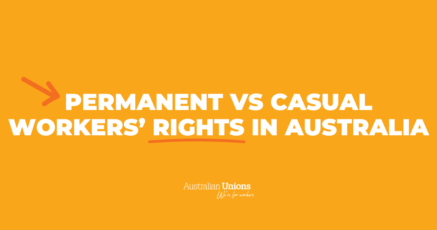


SHARE:
Early childhood educators put children before profit